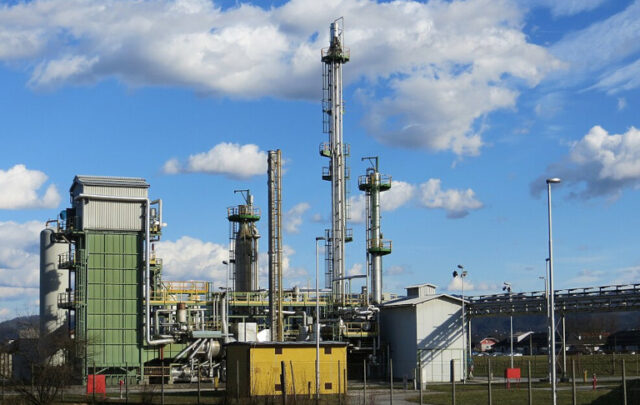The growing scarcity of oil and natural gas has provoked worldwide political conflict and a mad rush for renewable resources.
Like a volcano before it erupts, the crisis has heated up for decades, out of sight of oil-heated homes and petrol-powered cars.
But the signs of trouble are now evident, and not only at the pump, where $70-a-barrel prices eat into the pocketbook.
War in Iraq, tensions over Iran’s nuclear plans, the international standoff over genocide in Sudan, kidnappings and killings in Nigeria’s oil fields–all give frenzied expression to the world’s rocketing, insatiable thirst for oil.
German media talk of a “new” Cold War. U.S. columnist Thomas Friedman regularly warns New York Times readers that America’s appetite for fuel supports the very movements intent on its destruction.
At the upcoming G8 summit in St. Petersburg in July, energy issues are expected to dominate. With just weeks to spare beforehand, the European Union–which has haggled for years over a unified strategy –is expected to agree later this month to nail down an energy cooperation deal with Moscow and start talking to China.
Russia, Europe’s second-biggest oil supplier and source of 25 percent of its gas, flexed its energy muscle this past winter, when supplies to Western Europe were disrupted during a price dispute with Ukraine. The January explosion of gas lines into Georgia left Tbilisi in freezing darkness and ratcheted up political tensions with Moscow.
World energy demand is projected to increase 50 to 60 percent by 2030 and may triple by 2050, according to the Paris-based International Energy Agency and the U.S. Army Corps of Engineers.
Booming economic progress in places like China and India is a key factor, but the U.S. still sucks up one-quarter of the 80 million barrels of oil consumed every day by the world.
As pressure has grown, so have opportunistic political alliances.
The U.S., where imports make up 60 percent of consumption, gave full official backing to the $3.6-billion, 1,800-kilometer Trans-Caucasus oil line from the Caspian to the Mediterranean last year–even though the project originates in Azerbaijan, targeted by the U.S. for its human rights violations. The U.S. hopes the Baku-to- Ceyhan,Turkey line, which bypasses Russia, will undermine the region’s dependence on Iranian oil.
China has vigorously cultivated ties to Africa and Venezuela for energy resources, and it has drawn criticism for taking a softer line on Sudan and Iran by opposing sanctions and ultimatums at the U.N. Security Council.
India’s about-face on Myanmar, where it has dropped its support for the democracy movement and now courts the military junta, has provoked outcries at home from democracy activists. Investments by the state-run ONGC Videsh, Ltd. (OVL) in Sudan, where the government has been charged with genocide in the rebellious Darfur region, have also drawn fire.
The looming specter of “peak oil production”–the point at which oil production is expected to drop because reserves are too difficult to pump out–has combined with high prices and increasing political insecurity to boost the search for renewable energy sources. Oil experts say peak oil could come as early as 2010 or as late as 2047.
Long-simmering warnings by environmentalists over global warming from carbon emissions were on their own not enough to provoke serious consideration of energy alternatives such as wind, solar, methane from bio-mass, bio-diesel from palm and coco oils, and ethanol from grasses, sugarcane, and corn.
But last year’s Hurricane Katrina, which produced the world’s first “climate refugees,” went a long way to helping convince the general public of the need for change, said Lester Brown, head of the Earth Policy Institute environmental pressure group.
“Two years ago, most persons wouldn’t have known the price of a barrel of oil,” Brown said in a telephone interview. “Now, there’s insecurity both on the oil front and on the climate front, and it’s beginning to affect people’s thinking.”
Copyright 2006 dpa Deutsche Presse-Agentur GmbH





